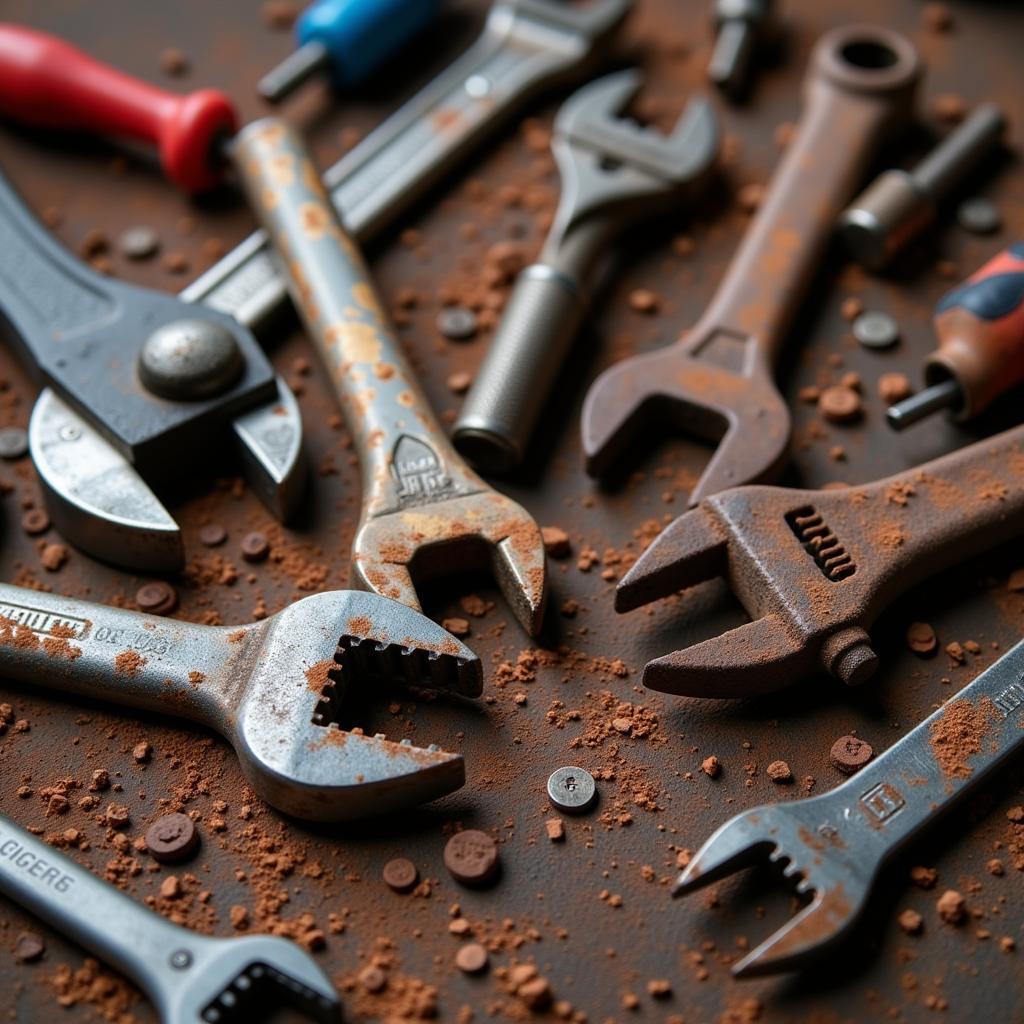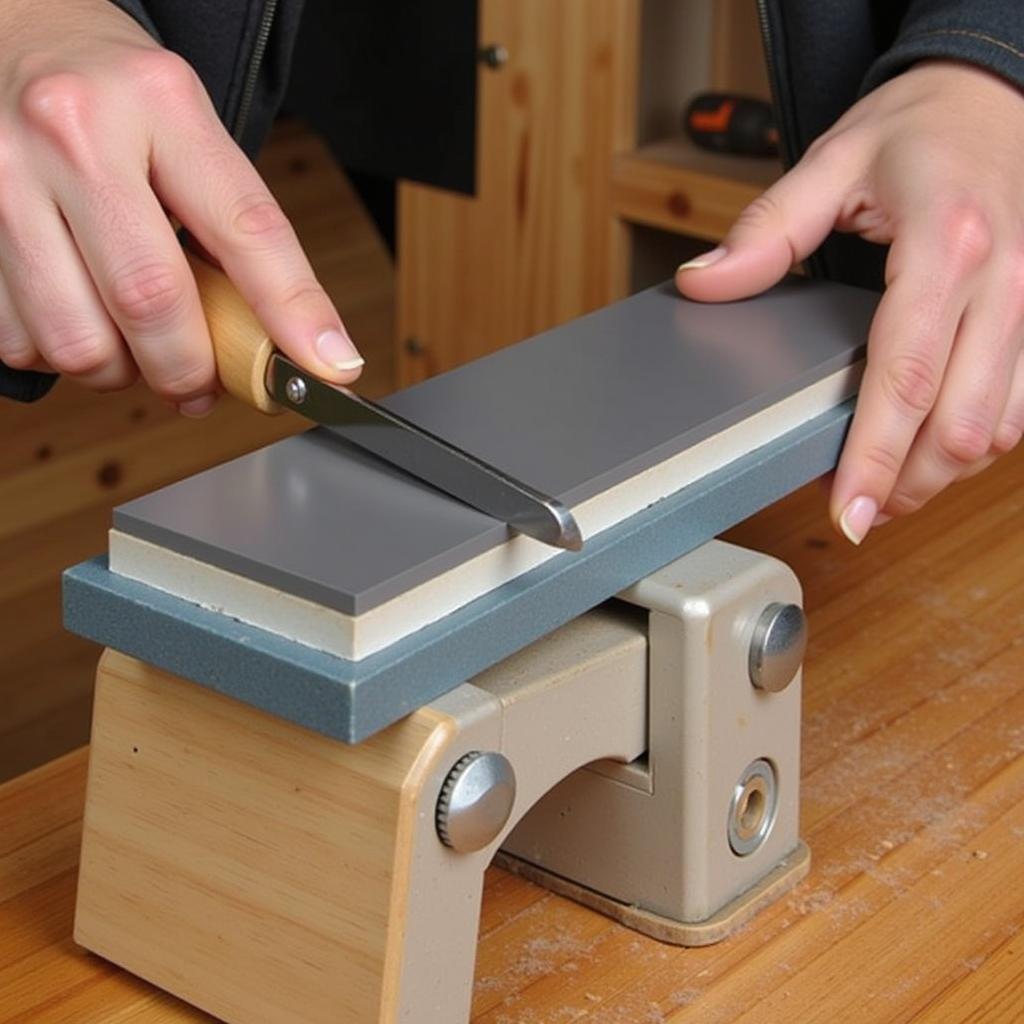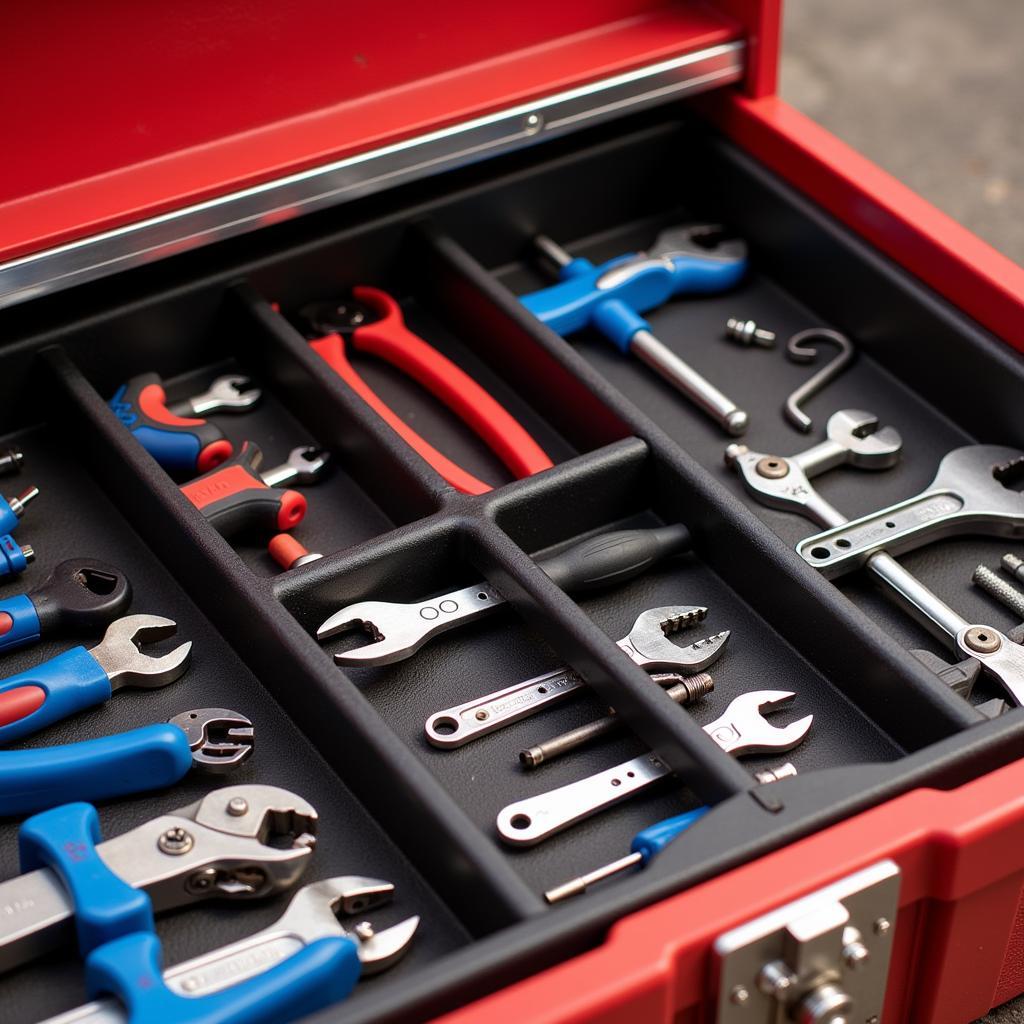Taking care of your hand tools is crucial for any mechanic, DIY enthusiast, or even the occasional home repairer. Proper maintenance not only extends the life of your tools but also ensures they perform optimally, leading to safer and more efficient work. This guide covers everything you need to know about How To Take Care Of Hand Tools, from cleaning and storage to specific care tips for different tool types. Let’s dive in!
Why is Hand Tool Maintenance Important?
Neglecting your hand tools can lead to rust, corrosion, and dulling, significantly impacting their effectiveness.  Rusty hand tools demonstrating the need for proper maintenance A well-maintained tool performs as designed, offering precision, control, and ultimately, better results. Moreover, regular maintenance can prevent accidents caused by tool slippage or breakage. Proper care also saves you money in the long run by avoiding the need for frequent replacements.
Rusty hand tools demonstrating the need for proper maintenance A well-maintained tool performs as designed, offering precision, control, and ultimately, better results. Moreover, regular maintenance can prevent accidents caused by tool slippage or breakage. Proper care also saves you money in the long run by avoiding the need for frequent replacements.
Think about it: investing a little time in tool care can save you a significant amount of money and frustration down the line. Who wants to be in the middle of a project only to have their tools fail them?
Cleaning Your Hand Tools: A Step-by-Step Guide
Regular cleaning is the foundation of hand tool care. Dirt, grime, and moisture are the enemies of metal, so removing them is crucial. Here’s a straightforward process:
- Remove loose debris: Use a brush, cloth, or compressed air to remove any loose dirt, dust, or debris clinging to your tools.
- Wash with soapy water: Use warm soapy water and a brush to scrub away any remaining grime. Avoid harsh chemicals that can damage the tool’s finish.
- Rinse thoroughly: Rinse off all the soap residue with clean water.
- Dry completely: Ensure your tools are completely dry to prevent rust. Using a towel or compressed air is highly recommended.
- Apply a protective coating (optional): For extra protection against rust, apply a light coat of oil or tool protectant.
This simple cleaning routine will keep your hand tools in excellent condition. Remember, consistency is key!
Specific Care Tips for Different Tool Types
Different tools require slightly different care. While the general cleaning process applies to most, here are some specific considerations:
Cutting Tools
Keep cutting edges sharp using appropriate sharpening tools.  Sharpening a chisel using a honing guide for precision Store cutting tools separately to prevent them from bumping against each other and dulling. Apply a light coat of oil to the blades to prevent rust.
Sharpening a chisel using a honing guide for precision Store cutting tools separately to prevent them from bumping against each other and dulling. Apply a light coat of oil to the blades to prevent rust.
Wrenches and Sockets
Ensure wrenches and sockets are free of debris. Inspect for any signs of wear or damage. A damaged wrench can slip and cause injury.
Measuring Tools
Keep measuring tools clean and dry. Avoid dropping them as this can affect their accuracy. Store them in their protective cases when not in use.
Storing Your Hand Tools Properly
Proper storage is just as important as cleaning. A designated toolbox or storage system keeps your tools organized, protected, and easily accessible.  An organized tool box showcasing various hand tools Consider a tool system care for optimal organization. A mini tool box for mars career interview could even be a starting point.
An organized tool box showcasing various hand tools Consider a tool system care for optimal organization. A mini tool box for mars career interview could even be a starting point.
Choosing the Right Storage Solution
There are various storage options available, from simple toolboxes to elaborate wall-mounted systems. Choose a system that fits your needs and space. Ensure the storage area is dry and well-ventilated to prevent rust and corrosion. You might even consider some of the tools used for those thinking about a career in tool and die making.
Troubleshooting Common Hand Tool Issues
Even with proper care, issues can arise. Here are a few common problems and their solutions:
- Rust: Remove surface rust with a wire brush or sandpaper. For heavy rust, consider using a rust remover.
- Stuck parts: Apply penetrating oil to loosen stuck parts.
- Dull blades: Sharpen blades using the appropriate sharpening method.
“Regular inspection and maintenance are paramount,” says John Smith, a veteran mechanic with over 20 years of experience. “A small issue caught early can save you a lot of trouble down the road.” He emphasizes the importance of having a good quality free career assessment tool to help choose the right tools.
Conclusion
Taking care of your hand tools is an essential practice for anyone who uses them. By following these simple cleaning, maintenance, and storage tips, you can ensure your tools remain in top condition, providing years of reliable service. This not only saves you money but also makes your work safer and more efficient. Remember, a little care goes a long way in how to take care of hand tools! Thinking about some specific tools for working under your car? Check out some great options for under car tools.
FAQ
-
How often should I clean my hand tools? Ideally, after each use. At the very least, clean them once a week.
-
What type of oil should I use for my tools? A light machine oil or a dedicated tool protectant is recommended.
-
Can I use WD-40 on my hand tools? While WD-40 can help loosen stuck parts, it’s not ideal for long-term rust prevention.
-
How should I store power tools? Power tools should be stored in a dry, protected location, away from moisture and extreme temperatures. Always disconnect them from the power source before storage.
“A well-organized toolbox is a happy toolbox,” says Sarah Jones, a seasoned DIY enthusiast. “It saves time and frustration when you can easily find the tool you need.”
When you need support please contact WhatsApp: +1(641)206-8880, Email: [email protected] or address 910 Cedar Lane, Chicago, IL 60605, USA. We have a 24/7 customer support team.

Leave a Reply